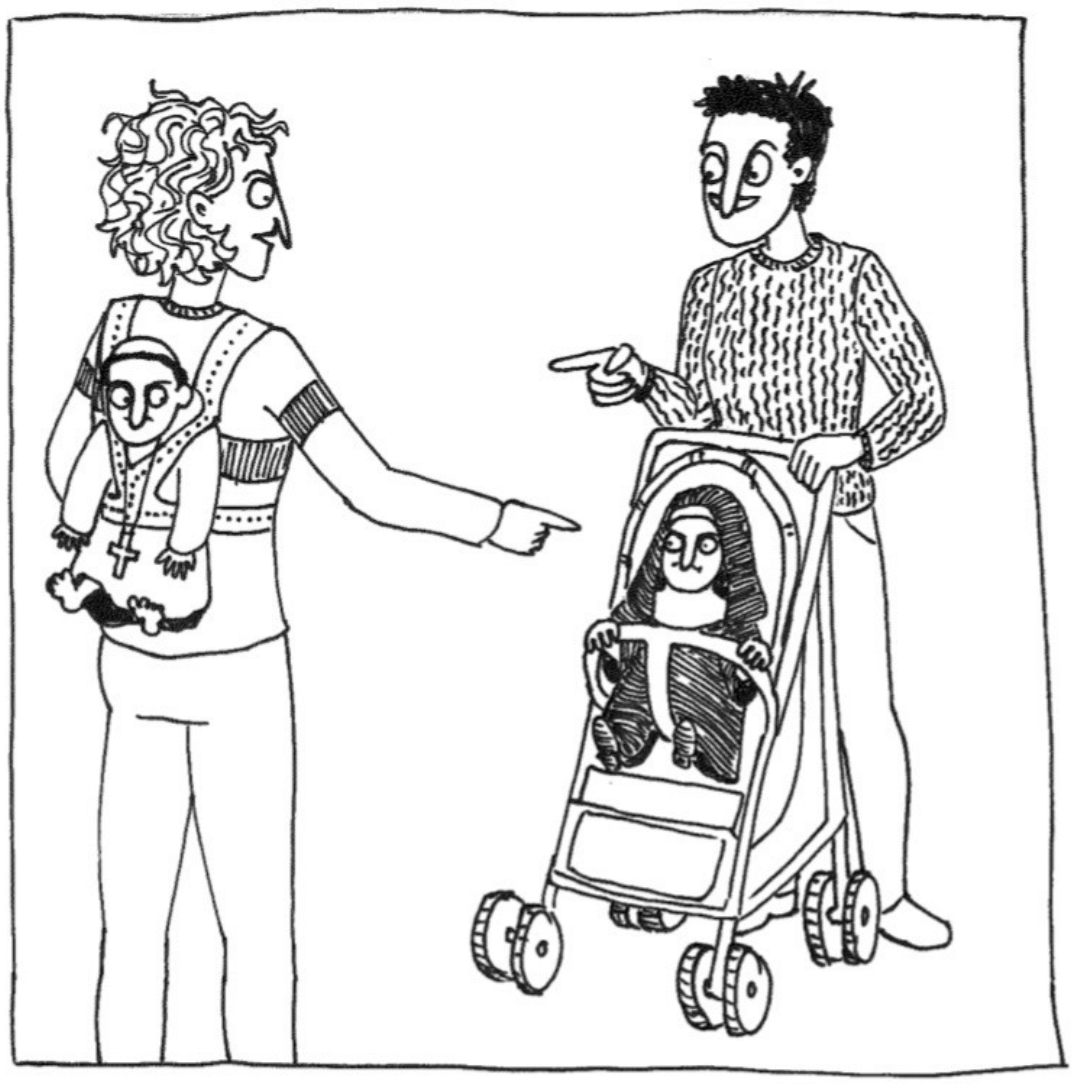Scrupulosity: The Grumpy Monk on Your Back
Scrupulosity can feel like carrying a grumpy monk on your back—one who whispers rules, demands perfection, and insists you perform “just to be safe.” His message is always the same: “Do more. Do it perfectly. If you don’t, something terrible might happen.”
But the truth is simple:
It will never be enough.
Not for him.
What Scrupulosity Actually Is
Scrupulosity is a subtype of Obsessive-Compulsive Disorder (OCD) involving religious or moral obsessions. Scrupulous individuals become overly concerned that something they thought, felt, or did might be a sin or a violation of moral or religious doctrine. Scrupulosity becomes religious OCD when they experience obsessions, unwanted thoughts, images, or urges, and engage in compulsions, mental and/or behavioral behaviors or avoidance of trigger situations, to reduce the anxiety by the obsessions. They often worry excessively about what their thoughts or behaviors mean about who they are as a person—“What if this means I’m bad? What if God is displeased? What if I’m not truly repentant?”
This is not devotion.
This is not holiness.
This is OCD wearing religious clothing.
And OCD always finds another “Yeah, but…” to throw at you. You can’t out-argue it because OCD isn’t looking for clarity—it’s seeking control. Trying to reason with OCD is like holding both ends of a rubber band: every time it pokes you, you poke back, and the tension only increases. The more you engage, the tighter the band stretches and the harder it becomes to break free.
So what’s the way out?
Stop Playing the Game
When intrusive thoughts show up—whether it’s “Did I sin?”, “Did I offend God?”, or “What if I didn’t confess correctly?”—your instinct may be to explain, reassure, research, confess again, or analyze the situation for the 12th time.
That is exactly what the grumpy monk wants.
OCD thrives when you fight it.
It grows when you try to silence it.
It tightens its grip when you try to prove it wrong.
Instead, take a different approach:
Notice the thought and let it be just that—a thought.
Not a command.
Not a prophecy.
Not a moral indictment.
Just mental noise.
Respond with gentle uncertainty:
“Maybe I sinned, maybe I didn’t.”
“Maybe something bad will happen, maybe it won’t.”
Uncertainty is not dangerous. In fact, it’s the doorway to freedom.
You’re not surrendering your faith—you’re surrendering your compulsions.
You Are in Charge—Not the Grumpy Monk
Scrupulosity tries to convince you that the monk sets the rules for the day. But he doesn’t.
You do.
Tell OCD:
“I’m in charge now. You don’t get to control my spiritual life.”
You don’t have to perform the ritual.
You don’t have to chase reassurance.
You don’t have to obey the monk’s fear-driven demands or piety rules.
You can choose to act from faith rather than fear.
Ride the Worry Hill
Instead of trying to make the fear disappear, imagine riding it the way you’d bike up a hill. Don’t slam on the brakes or turn back just because the climb feels uncomfortable.
Let the worry rise.
Let your body be anxious.
Let the intrusive thought sit there.
And if you stay with that discomfort long enough, something powerful happens:
Your brain learns the thought isn’t a threat.
Your body learns anxiety can pass without compulsions.
Your faith becomes rooted in trust, not fear.
This is where healing begins.
Do Something Different
Scrupulosity pushes you to eliminate uncertainty by confessing again, Googling moral theology, replaying scenarios in your head, or seeking reassurance repeatedly.
Instead, do the opposite:
Stop researching whether it was a mortal sin for the fourth time.
Stop replaying conversations word-for-word searching for wrongdoing.
Stop asking multiple priests the same question hoping for a different answer.
Choose actions that contradict the grumpy monk:
Pray simply and faithfully, without repeating things “until it feels right.”
Change your prayer routine without checking for errors.
Read Scripture about God’s mercy without ruminating on fears and doubts.
Go outside.
Call a friend.
Start a hobby.
Live from trust instead of fear.
This isn’t spiritual carelessness—it’s spiritual maturity. Scrupulosity is not devotion; it is fear disguised as holiness. The struggle is not with God, but intolerance of uncertainty and with trusting His mercy.
Train Your Brain (and Soul) Differently
Every time you resist a compulsion, you retrain your brain to see:
Thoughts as thoughts
Feelings as feelings
Doubts as normal
Uncertainty as survivable
God as merciful, not microscopic
Research shows that the amygdala—the brain’s fear center—becomes hyper-reactive in OCD, especially when triggered by fear or uncertainty. This heightened activity fuels the compulsion cycle. But each time you let a thought be a thought, you teach your brain that it doesn’t need to sound the alarm.
Every time you refuse the monk’s demands, you grow stronger.
Every time you act out of faith rather than fear, the monk gets quieter.
You’re not trying to get rid of him. You are learning not to let him run your life.
And here’s the beautiful part:
Scrupulosity loses its power the moment you stop obeying it.
If this article resonates with you and you’re struggling with scrupulosity or OCD, please reach out for professional support—especially from a therapist trained in Exposure and Response Prevention (ERP), the gold-standard treatment for OCD.

